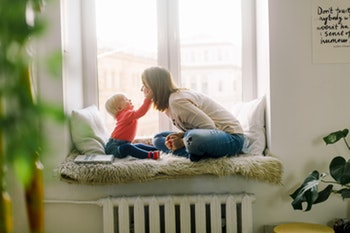Life is not a poem competition, nor an upcoming exam. There's no "how to" manual to live it. And often as parents, our important challenge lies in how to prepare our kids for life and life skills education.
We find engaging activities or coaching centres for them to be good communicators, active listeners, dancers, etc. But when it comes to life, they depend on parents to learn from. So how do we simplify life for our kids? – By helping them learn life skills.
What are life skills?
According to the World Health Organisation (WHO), "Life skills are the abilities for adaptive and positive behaviour that enable individuals to deal effectively with the demands and challenges of everyday life." Simply put, it’s a skill-set that enables one to effectively manage the challenges and situations that they face in their daily lives.
Life Skills Education:
The school curriculum ensures that our little ones are prepared for life - academically. Their focus lies on teaching the ABCs to XYZs of every subject. But we all know life is beyond these subjects. Which is why, it is ideal to educate our kids on life skills and other life skills activities that they like or have a natural inclination towards.
Let’s take football coaching as an example of life skills activity. When a kid learns football, he learns the skills of playing, the spirit of working in a team, understanding the importance of focus, and lastly, emotions involved in winning and losing. These lessons help in the kids’ overall development. This sportsman spirit eventually helps them in the future to give their best in life at any stage in life.
Life skills Importance:
Life skills, as the name suggests are helpful at any time and stage of life. The earlier one learns them, stronger the foundation is built. These skills not only focus on one’s behavioural or thinking patterns but also focus on the wholesome growth of the kid as an individual.
When the kids are at a learnable age, they are sensitive to their surroundings. Hence, it is the best time to begin learning life skills development. Learning at this age helps them in forming their moral grounds and start addressing the life situations independently.
Partner with your kids in learning:
Like many other things, even learning life skills begins at home! When parents start looking at their children as partners, the process of learning life skills becomes easier for them. Asking your children about their opinions, showing interest in knowing their likes and dislikes, involving them in chores and holding them responsible for consequences are some ways in which learning life skills begins at home. The kids respond to parents’ keenness and are more comfortable in sharing about their opinions. What more, they enjoy the parental bond that develops with time through these activities.
So parents, let's get started with life skills training at home!

